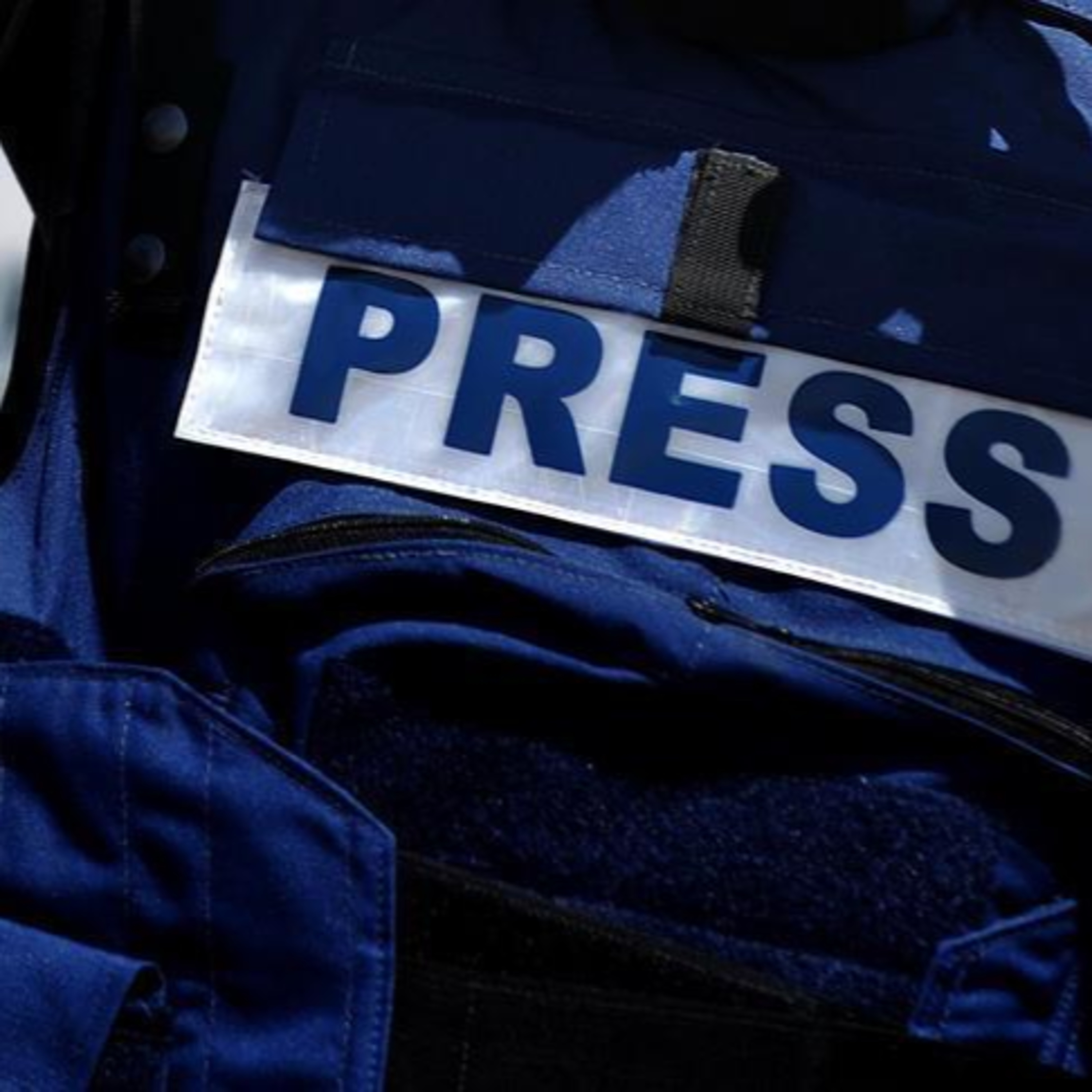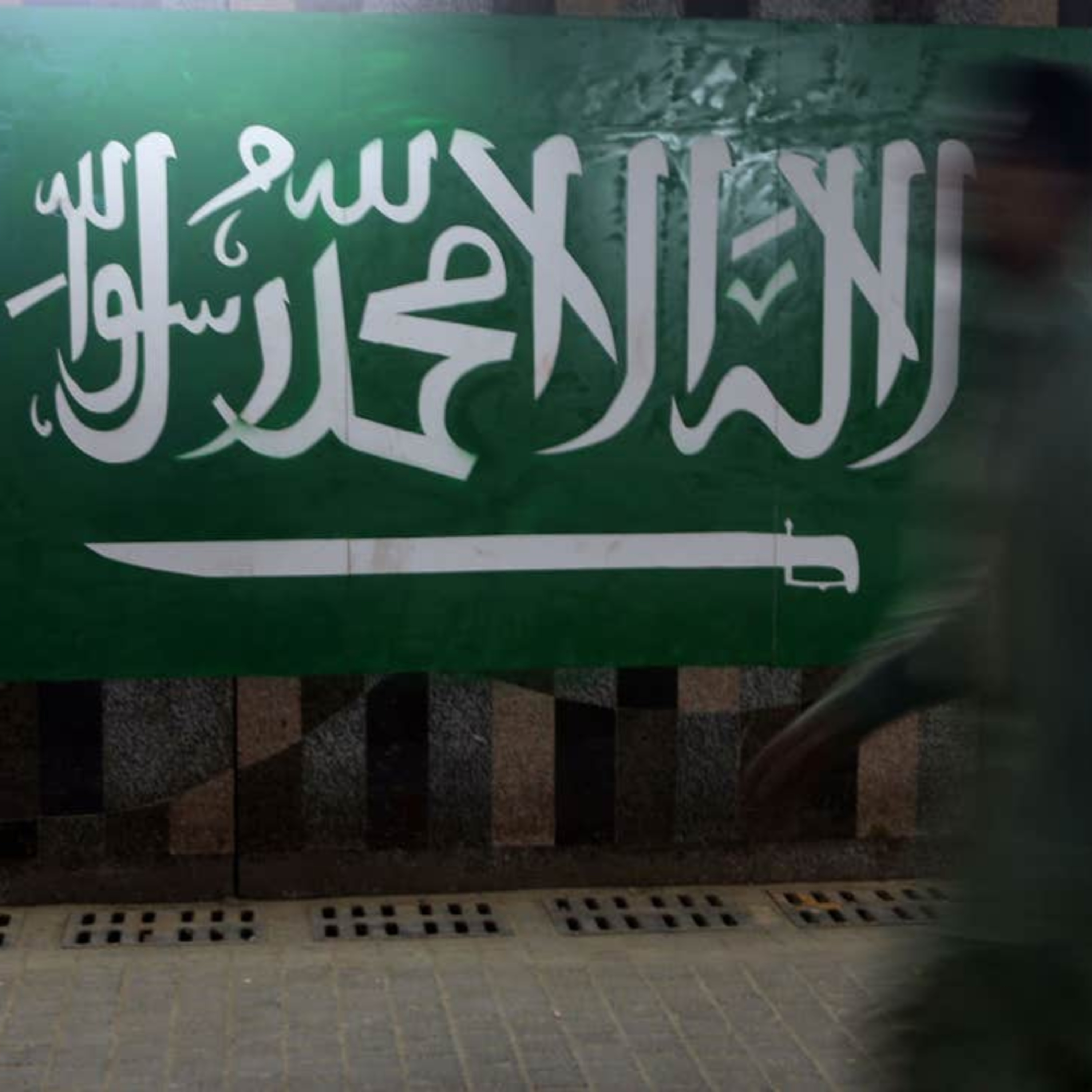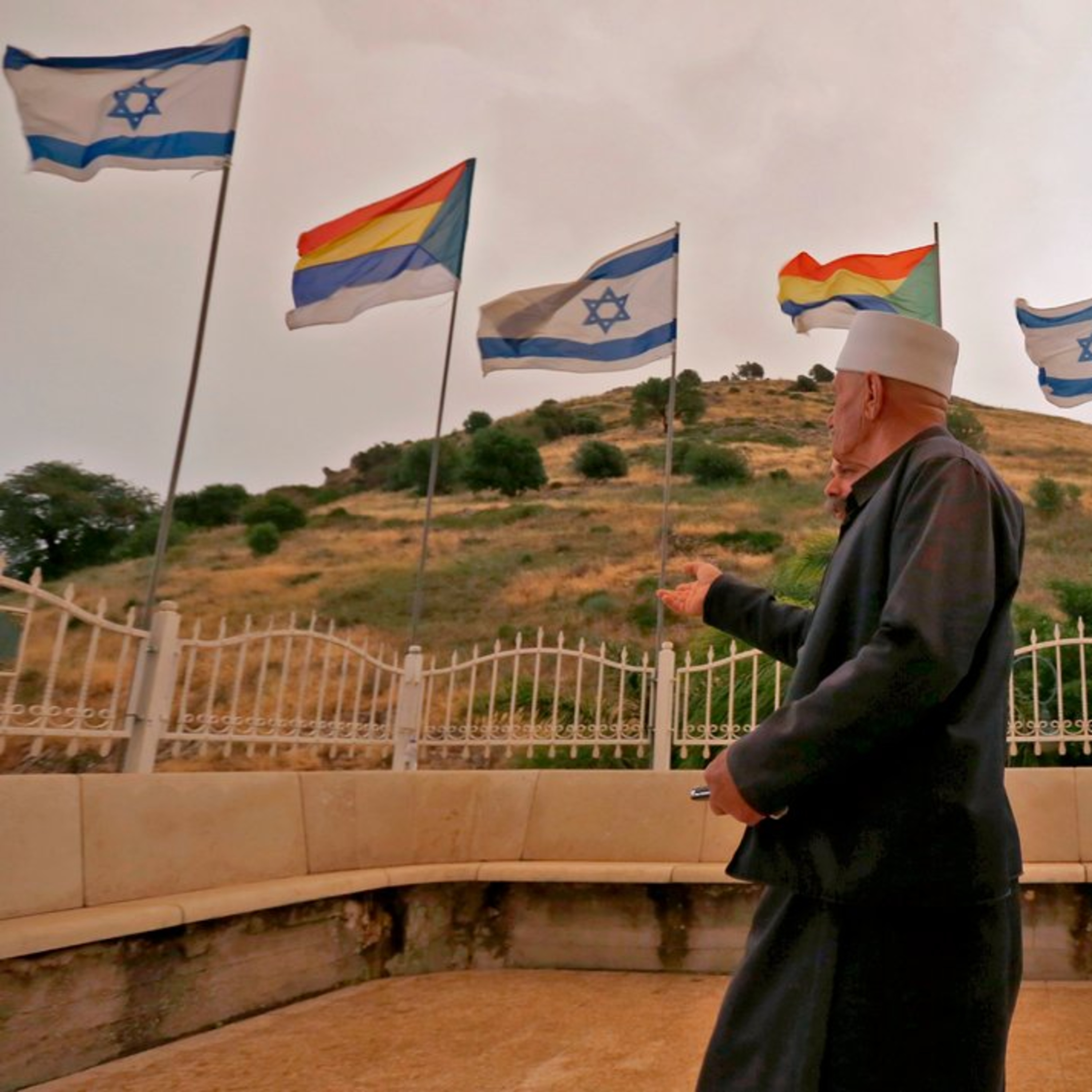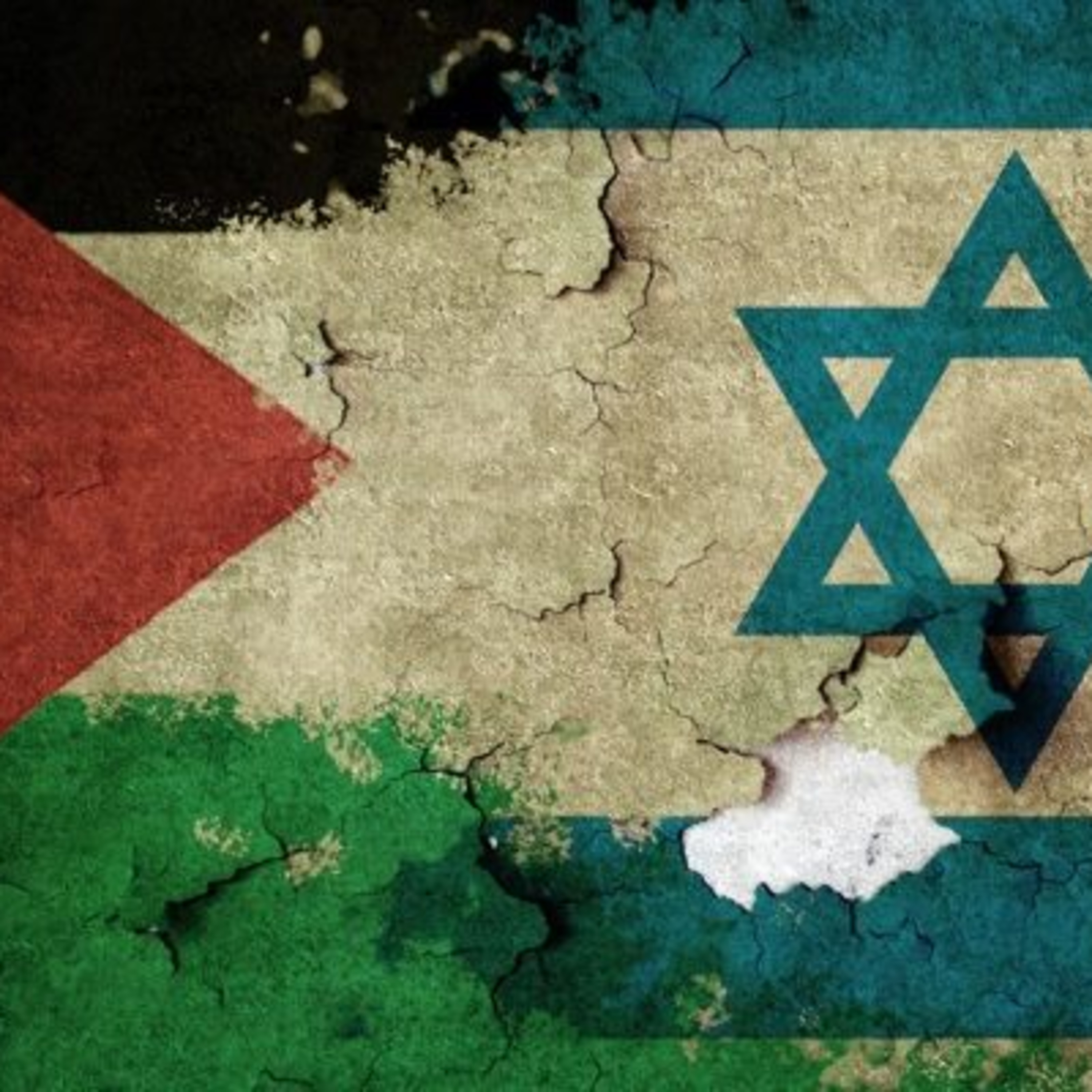Discover Nazra: Politics, Society and Extremism
Nazra: Politics, Society and Extremism

Nazra: Politics, Society and Extremism
Author: Lorcán Owens
Subscribed: 1Played: 52Subscribe
Share
© Lorcán Owens
Description
Nazra, which in Arabic means opinion or perspective, is a podcast hosted, edited and published by Lorcán Owens.
- Politics
- Society
- Extremism
- Polarisation
With a focus on the Near and Middle East
- Politics
- Society
- Extremism
- Polarisation
With a focus on the Near and Middle East
16 Episodes
Reverse
How and why humans engage in conflict is like asking how long a piece of string is. Conflict is complex, multi-faceted and has been part of the human experience since the origins of the human species. Joanna Nakabiito approaches conflict from the point of view that both belligerents feel threatened by the other, by an innate sense that a wrong is being righted or that conflict is an existential necessity. Joanna's job as a Rotary Peace Fellow and consultant in peace and security is to dissect the causes of conflict by engaging with the actors involved directly. Only through this can a conflict ultimately be prevented or ended. Joanna and I discuss why humans engage in conflict, how to approach conflict prevention without falling prey to emotion or bias, and the importance of teaching conflict prevention as part of human rights education at a young age.
Michael Stephens, Political Risk - Security Analyst and Research Fellow, joins me to analyse the British Government's policy paper on national security and international policy, known as the 'Integrated Review,' or in long form: 'Global Britain in a Competitive Age: the Integrated Review of Security, Defence, Development and Foreign Policy.'
Michael is an experienced analyst, having worked as a Research Fellow at the Royal United Services Institute (RUSI) and the Foreign and Commonwealth Office. With interests in the Middle East, national security and Anglo-American relations, Michael assesses the UK's objectives and policies on some of the key geopolitical issues in the world today.
We discuss the UK's role as a soft power in promoting reform and stability in the Middle East, how to deal with China on human rights and the importance of restoring civility and respect to Anglo-Irish and Anglo-EU relations.
The recent visit of Pope Francis to Iraq brought the attention of the world to a beleaguered community: Iraqi Christians. Iraq's Christians trace their origins back to the mists of antiquity in ancient Mesopotamia, having converted during the apostolic mission of St. Thomas, and lived through the Arab Conquest, the Ottoman Empire and the post-Great War British Mandate. However, Iraq's Christian communities have arguably endured the most difficult chapter of their history in the 21st century.
Following the US and British invasion of Iraq in 2003, Iraq's delicate ethnic and sectarian balance, previously held together under Saddam Hussein's dictatorship, fell to chaos. The invasion, ostensibly to destroy non-existent 'Weapons of Mass Destruction', unleashed a brutal civil war, with minorities such as the Chaldean Catholic Christians caught up in the crossfire. Since 2003, when they numbered some 1.5 million people, the population of Iraqi Christians has plummeted to some 250,000.
The persecution of Christians, as well as Yazidis, Shia and moderate Sunnis, intensified under the reign of the so-called Islamic State from 2014-2017. Hundreds of thousands of Christians fled from their heartland in the northern Iraqi region of Nineveh to Iraqi Kurdistan, or fled Iraq itself. Today, more Iraqi Christians reside in Michigan than in their historic homeland of Iraq.
With the defeat of ISIS, Iraq's dwindling Christian communities, mainly composed of Assyrians, Armenians and Chaldeans, were finally able to welcome the long awaited visit of the Bishop of Rome. For many in the West, it was the first time in decades that the world's media conveyed Iraq's diversity, authenticity and humanity.
Weam Namou, who lived in Baghdad until she was ten, was able to watch the visit with pride and hope from her newfound home in Detroit, Michigan. Immersed in the history, heritage and theology of her people, Weam and the Chaldean Catholics know perhaps more than anyone how politics, sectarianism and colonialism can distort the truth and cause untold harm and misery. Now, following the successful visit of the Pope to Iraq, Weam and her people hope to close the chapter of the past 18 years for good. With renewed confidence as they look to the future, the Chaldeans are eager to emerge from the fear of the past with pride, hope and optimism. Both in their ancient homeland of Mesopotamia and their new home in Michigan, their message to the world is one of remarkable resilience. Though challenges remain they are determined to say: we are here to stay.
People are often defined by their environment, their identity and their upbringing. For Drew Mikhael, who is both Northern Irish and Lebanese, his identity and lived experience growing up alternately between Belfast, during the last phase of The Troubles, and post-war Beirut had a profound impact on his life. Now working as a Research Fellow and Consultant focusing on conflict, minority rights, refugees and extremism, Drew is intimately aware of the value of peace building, reconciliation and the power of compromise in ending strife and bringing hope.
In the 1970s and 1980s, both Beirut and Belfast were bywords for sectarianism, war and chaos. Having grown up in these dichotomous yet dynamic, cosmopolitan cities, Drew has seen the transformative impact that the Good Friday-Belfast and Taif Agreements have had on both Northern Ireland and Lebanon.
However, in recent years, both Northern Ireland and Lebanon have faced new and serious challenges. Northern Ireland's status within both the UK and EU has been usurped by Brexit. It now faces an uncertain future, as some disgruntled and anxious Unionists see the Northern Ireland Protocol, the compromise negotiated between the EU and UK to maintain an open border on the island of Ireland, as a threat to their equality of status as a nation within the UK. Nationalists believe that Brexit has ruptured any justification for Northern Ireland remaining in the UK, and now see a referendum on Irish unity as the inevitable solution to Brexit.
Meanwhile, Lebanon is suffering a crippling economic disaster, caused by the utter mismanagement of every facet of life by the government. However, with the murder of activist and Hezbollah critic Lokman Slim on the 4th of February, Lebanon may face a real risk of a return to crimes of impunity.
In this episode, Drew and I discuss both Northern Ireland and Lebanon, how recent events have led to the current worrying trends and how these risks could be deescalated and ultimately resolved, just as they were in the 1990s.
Hadiya Masieh knows only too well how easy it is for idealistic, insecure or angry youths to fall prey to those seeking to manipulate vulnerability, disillusionment or marginalisation for their own nefarious objectives. Having been duped by Islamists shortly after her conversion to Islam, time, maturity and self-confidence made her realise that she hadn't sought guidance in her faith from the right sources. She decided to rely on her own intuition and humanity to come to a balanced understanding of Islam and its role in the 21st century, and abandoned extremism as a follower to become its nemesis.
Now a researcher, fellow and counter extremism expert, Hadiya has used her own experience to beat extremists using their own methods. The founder and CEO of Groundswell Project, Hadiya and her team use the internet to integrate the accessibility of interfaith, counter-extremism, peace building and community development organisations under the one platform.
Determined to be proactive against extremists, Hadiya is passionate about the value of human connectivity and building community solidarity to counter hate. In this episode, she shares her story and explains how she became inspired to use her insights of extremist ideology to counter their own methods of recruitment.
Carol Abi Ghanem wants to be a nuisance. Not for the sake of it, but because she has to be. A researcher with the Lebanese Centre for Policy Studies, an activist, DJ, actress and psychologist, Carol is also an outspoken and passionate campaigner for LGBTQ+ rights, a feminist and a proud Lebanese woman, who is not content to wallow in sorry while her country collapses around her.
When protests erupted in Lebanon on Thursday the 17th of October 2019, ostensibly because of a proposed WhatsApp tax, Carol could sense this was more than just a once-off event. The protests ended up lasting months, extended well beyond Beirut to encompass the entire country and at their height, involved the vast Lebanese Diaspora in a global outcry denouncing decades of corruption, incompetence, theft and deception by an incorrigible sectarian political class.
It's now over one year since the Thawra, or revolution, commenced and Lebanon's plight has worsened to depths that nobody could have foreseen. The explosion at the Port of Beirut on the 4th of August was for many the ultimate proof of how badly Lebanon had been governed since 1990, to the point where citizens now feel threatened not by each other, not by foreign meddlers, but by the sectarian warlords-cum-politicians who were supposed to protect them.
Carol and I discuss all of these events with the benefit of hindsight, what Lebanese can learn from the past year and what people can do next to keep the movement alive.
When Dipendra Uprety emigrated to Lebanon to support his family back home in Nepal, he never imagined that he would end up in debt, undocumented, enslaved and imprisoned. Yet, that is exactly what happened to him. His experience in prison, where he met other mostly female victims who worked as maids and had been abused by their sponsors, led Dipendra to fight on their behalf. Together with Priya Subedi, herself a victim, they set up 'This is Lebanon', a registered charity that exposes kafala abusers and advocates on behalf of victims.
Dipendra is just one of the many migrant workers who fall victim to the kafala system, the migrant sponsorship process that operates in Lebanon, the Gulf and other Arab countries. Kafala has been described as exploitative, abusive, racist and de facto modern slavery. Sponsors are responsible for paying visa and residency fees on behalf of the sponsored worker, who cannot work for another employer without the permission of their sponsor. This leads to systematic and pervasive abuse: from the mass confiscation of passports, to the withholding of salaries to sexual abuse and even death.
Dipendra is now living in Canada and uses his new-found freedom to fight for those still trapped in the system.
Colm Byrne is a teacher and CEO of See BeyondBorders Ireland, an NGO whose mission is to improve teaching and learning standards in Cambodia by training and mentoring teachers.
Colm first visited Cambodia in 2014 and has been there ever since. Colm and I discuss the purpose and mission of his work and that of SeeBeyondBorders, the importance of a quality education, the value of strategic international development aid and why he believes investing in teachers is the best way to invest in improved educational outcomes in pupils.
Mohamad Faour dreams of one day returning to live, work and prosper in Lebanon, his homeland, even though he has only lived there on and off on holidays.
Mohamad, like so many Lebanese, lives and works abroad as one of the many Lebanese of the diaspora. He is proud to call himself Lebanese, but he is also critical of a system that perpetuates an eternal stream of emigration to Australia, the Gulf, Canada and Europe. Meanwhile, those who remain are condemned to a dysfunctional and demeaning dilution of their rights and citizenship, as sectarian warlords-cum-politicians divvy up their patronage and clientelism among those who convey appropriate loyalty or have sufficient 'wasta' to play the system. Or, that's how it was designed to be, until it stopped working.
A gradually worsening economic crisis exploded into popular unrest in October 2019, and since then, the economy has spiraled into oblivion. Now, with nobody to blame and nowhere for politicians to hide, the Lebanese lira devaluing by the day and the IMF waiting impatiently for Lebanese authorities to start facing up to the scale of this crisis, there's a growing sense that Lebanon is transitioning to a new phase in its history, with the repercussions and implications of this transition still unknown.
Mohamad, as an economist, outlines in blunt and frank terms how this crisis developed as a product of the post - Civil War attempt to rebuild Lebanon's shattered economy. However, as a citizen, he also passionately advocates for solutions to re-establish the state, one with no links to the old regime and with the rights and dignity of Lebanese citizenship at it's core.
Ivan Humble is, in his own words, 'an ordinary English bloke from a council estate in East Anglia'. He grew up in a town that's almost completely white British, and where there weren't many opportunities to meet people with a different perspective or viewpoint.
Ivan knew people from his town who had served in the British Army, and when he heard there was a homecoming for local troops, he decided to show his support. On that day, he was shocked to encounter a group who not only opposed the troops - his troops, Britain's troops - but were openly advocating for a radical version of political Islam. The person who was leading this group was Anjem Choudary, an extremist preacher, who has since been convicted for supporting Islamic State.
Ivan was enraged, and that fateful day led him to start researching Muslims and Islam on social media, where he found out everything he needed to know about Muslims. Or so he thought. In need of a sense of belonging and seeking a group which supported his worldview, Ivan joined the EDL (English Defence League) and soon became a regional organiser in East Anglia. However, chance encounters with two Muslims sowed the seeds of doubt in the EDL philosophy he had become so immersed in.
This is the story of Ivan's journey, a journey from hater to peacemaker.
Nancy Yammout is a Lebanese social worker who lives in Beirut, Lebanon. However, her job is not what one would typically associate with a social worker. Together with her sister, Nancy works with probably the most controversial and taboo people in Lebanese society. In this episode of Machnamh, Nancy tells me about her work in Roumieh prison, and how it restores her hope and faith in humanity.
Lebanon, despite its small size, plays a hugely important role in international relations, culture, migration and balancing a tightrope position between East and West. Lebanon is also an incredibly diverse, vibrant yet troubled country that is currently undergoing a period of intense disquiet, financial meltdown and an uncertain future.
Within these complexities, Lebanon's citizens actively participate in a society that often seems at odds with itself: an LGBTQ movement that's thriving, openly seeks to implement political reforms, while simultaneously, Iranian backed Hezbollah runs its own militia, social security and is often described as 'mini state' within Lebanon. Likewise, Palestinian and Syrian refugees in Lebanon have had to learn to survive and try to preserve their societies in exile, while a plethora of Christian communities and their parties wish to preserve a way of life that is not unlike that in mainland Europe. Meanwhile, the Lebanese Diaspora has an important psychological and economic influence on Lebanese society, in ways that are often subconscious but ever present.
Jasmin Lillian Diab works at the intersection of three important elements of Lebanese society: Gender, Migration and Conflict. In this interview, Jasmin and I discuss life as a woman in Lebanon, how the LGBTQ movement maintains a unique position dancing between liberty and repression, the Lebanese 'Braindrain', refugees and the future for Lebanon as it contends with its worst financial and economic crisis in decades.
Journalists faces many obstacles around the world, but being a journalist in the occupied Palestinian Territories means these challenges are amplified.
Asides from the pressure facing journalists from the declining use of traditional media, the Palestinian press faces a dual challenge of meandering the many physical restrictions imposed by the Israeli occupation and working within territories governed by two Palestinian administrations that operate different standards towards freedom of the media.
Hamas, the fundamentalist Islamist movement which has ruled Gaza since 2007, imposes severe restrictions on what journalists can report, with negative coverage of Hamas forbidden. In the West Bank, the situation is better under the PA but far from ideal.
During the week when Palestinians commemorate the Nakba, the catastrophe, I spoke to Monjed Azmi Jadou, the Director of Palestine News Network (PNN).
We discuss what life is like working as a journalist in the Occupied West Bank, the Israeli-Palestinian Conflict and how Covid-19 and the declining support for independent media is exacerbating the obstacles facing the media in Palestine.
Since 1932, with the consolidation of the Kingdom of Saudi Arabia, the Al Saud family, after which the country is named, have espoused themselves as 'Custodians of the Two Holy Mosques of Mecca and Medina', a title that was previously held by the Hashemite monarchy, now the ruling family of Jordan.
What began as a small emirate in central Arabia in the 18th century was by the 1930s an absolute monarchy, whose legitimacy was defined not just by the sword, but by the crescent; by the sword through jihad, which brought the former Ottoman territories of the Hejaz under Saudi rule, but also by an alliance with the austere Wahhabi or Salafi movement, a revivalist, fundamentalist version of Islam that started in Arabia in the 18th century.
The discovery of oil was a turning point for the Arabian Peninsula and brought Saudi Arabia fabulous wealth which it used to fund missionary activity abroad. Since the 1970s, Saudi Arabia has been accused of spreading an intolerant and extreme version of Islam that is not only a deviation from the more moderate form of Sunni Islam practiced for centuries, but is also responsible for inspiring the ideology of Islamic State, Al Shabab, Tahrir Al Sham and Al Qaeda.
In this podcast, I speak to Phil Gurski, a former Canadian spy and terrorism expert, to discuss Saudi Arabia's role in inspiring Islamist thought and whether there is a movement within the kingdom to tackle this ideology.
In Part Two of my interview with Corey Gil-Shuster, we discuss two unique communities within Israeli society: the Ultra Orthodox Jews, also known as the Haredim, and the Druze, an esoteric ethno-religious community of Israeli Arabs who live in Northern Israel and the occupied Golan Heights.
Recent controversies within Israel regarding the handling of Covid-19 among the Haredim have highlighted how this community often lives a closed lifestyle within wider Israeli society. Meanwhile, the Druze are seen as a bridge between Arab culture and identity and mainstream Israeli society.
Corey describes the Haredi world view and how the Druze have managed to preserve their Arab culture and religious traditions since the tumultuous creation of Israel in 1948.
In part one of my first ever podcast, I speak with Corey Gil-Shuster, Director of the International Programme in Conflict Resolution and Mediation at Tel Aviv University. We discuss his work on 'The Ask Project', the recent breakthrough in Israeli politics, Benjamin Netanyahu's controversial plan to annex Area C of the West Bank and the regional and global ramifications if this plan comes to pass. To see more of Corey's Ask Project, check out and subscribe to his YouTube channel www.youtube.com/user/coreygilshuster




















